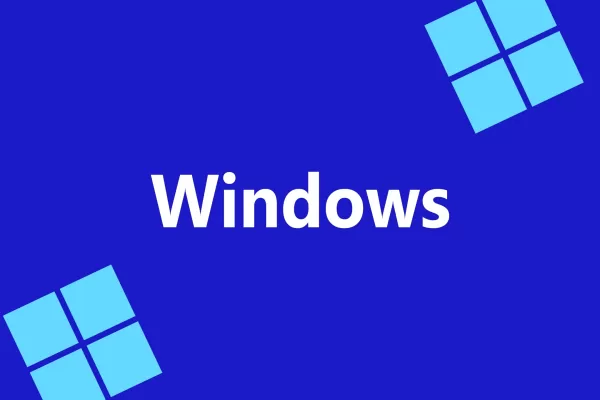AI-Powered Songwriting: Revolutionizing Music Creation
Artificial intelligence is reshaping the music industry, introducing innovative tools for artists, songwriters, and enthusiasts. This article delves into AI's role in music, exploring its tools, applications, and impact on the future of creativity and production.
Key Highlights
AI transforms music creation with tools for composing, producing, and personalizing tracks.
AI music tools allow anyone to create original songs without deep musical expertise.
Ethical debates around AI music focus on copyright and artistic ownership.
AI supports tasks like generating background music or crafting complete compositions.
AI algorithms study vast music datasets to create new melodies and patterns.
AI enables artists to push creative boundaries and overcome traditional constraints.
The future may see human-AI collaborations redefining music production.
AI-generated music sparks discussions about art and human creativity.
The Emergence of AI Music Creation
What is AI Music?
AI music, or artificial intelligence-generated music, involves compositions created using algorithms and machine learning. These systems analyze extensive music datasets to detect patterns, structures, and styles, producing new melodies, harmonies, and rhythms.
AI music tools have advanced significantly, moving from basic outputs to complex, original works. They’re now accessible to professionals enhancing their craft and amateurs exploring new musical paths.
Core Elements of AI Music Creation:
- Data Analysis: AI extracts patterns from large music datasets.
- Machine Learning: AI learns musical structures and styles.
- Composition Algorithms: AI generates new music based on patterns and user input.
- Customization Options: Users can tailor style, tempo, and instruments.

AI’s growing capabilities position it as a key force in music’s future, inspiring innovative creation methods and adapting to diverse needs.
Transforming Songwriting
AI is revolutionizing songwriting by generating initial melodies, harmonies, or chord progressions, sparking ideas and breaking creative barriers.
AI also aids in lyric creation and arrangement, analyzing hit songs to suggest themes, rhymes, and structures that captivate listeners.
AI’s Role in Songwriting:
- Melody Creation: AI produces unique melodies based on user settings.
- Harmony Development: AI crafts harmonies to enrich melodies.
- Chord Progression Support: AI suggests evocative chord sequences.
- Lyric Suggestions: AI offers ideas for themes, phrases, and rhymes.
- Arrangement Guidance: AI balances musical elements for dynamic compositions.
AI tools enhance, not replace, songwriters, freeing them to focus on emotional depth while handling technical tasks.
Platforms like Soundful, Amper Music, and Jukebox offer subscription-based music production, varying in output volume.

AI Music Tools and Platforms
Discovering AI Music Software
A range of AI music composition tools has emerged, each with distinct features for amateurs and professionals alike.
Notable AI Music Platforms:
- Amper Music: Creates custom music for videos, podcasts, and ads with a user-friendly interface.
- Jukebox: OpenAI’s model generates music with lyrics across diverse genres.
- Ecrett Music: Offers royalty-free music via a simple drag-and-drop interface.
- AIVA: Specializes in emotional, cinematic music for films and games.
- Boomy: Simplifies music creation for all skill levels, enabling sharing and monetization.
These platforms generate melodies, harmonies, and rhythms, with customization options for style, tempo, and instrumentation.
Key Features of AI Music Software:
- Style Transfer: Applies one music style to another.
- Melody Harmonization: Generates harmonies for melodies.
- Rhythm Creation: Produces complementary rhythms.
- Automatic Arrangement: Organizes musical sections cohesively.
Exploring multiple platforms helps users find the best fit for their creative goals.
Platform Comparison:
Feature Amper Music Jukebox Ecrett Music AIVA Boomy Focus Custom music for commercial use AI-generated music with lyrics Royalty-free music Cinematic, emotional music Simple creation for all levels User Interface Intuitive Command-line Drag-and-drop Professional-grade Streamlined Customization High Limited Moderate High Moderate Pricing Subscription Research-based Subscription Subscription Subscription Ideal For Video creators, advertisers Experimental artists Content creators Film composers, developers Beginners, enthusiasts
Using AI Music Generators
Step-by-Step Guide
AI music generators are user-friendly with guided processes. Here’s how to create music with AI:
Step 1: Select an AI Music Generator
Choose a platform based on musical styles, customization, pricing, and interface.
Step 2: Set Musical Parameters
Define preferences like:
- Genre: Choose electronic, classical, pop, etc.
- Tempo: Set slow, medium, or fast.
- Instrumentation: Select piano, guitar, drums, etc.
- Mood: Pick happy, sad, energetic, etc.
Step 3: Generate Music
AI creates a composition based on your inputs.
Step 4: Refine and Customize
Adjust melody, harmony, rhythm, or arrangement as needed.
Step 5: Export and Share
Save music in formats like MP3 or WAV for projects or sharing.
These steps make AI music creation accessible and effective.
Pricing for AI Music Generators
Subscription and Licensing Options
Pricing varies by platform and features, with subscription or licensing models.
Subscription Plans:
Monthly or annual plans offer unlimited track creation, costing from a few dollars to hundreds.
Licensing Models:
Pay per track, with fees based on commercial or personal use.
Check for free trials to test features before committing.
Summary:
- Subscriptions: Unlimited tracks for a recurring fee.
- Licensing: Per-track fees based on usage.
- Free Trials: Explore platforms risk-free.
Review pricing and terms to match your needs and budget.
Pros and Cons of AI in Music
Pros
Faster music creation
Cost-effective production
Expands creative possibilities
Accessible to non-musicians
Personalized music experiences
Versatile for content creation
Cons
Copyright and ethical concerns
Potential job displacement
Limited emotional depth
Risk of creative uniformity
Reliance on algorithms
Questions of authenticity
Core Features of AI Music Platforms
Essential Functionalities
AI music platforms offer tools to streamline creation:
Melody Creation: Generates melodies based on tempo, key, and genre.
Harmony Development: Adds complementary harmonies to enrich compositions.
Rhythm Generation: Creates rhythms to enhance musical dynamics.
Arrangement Support: Organizes sections for cohesive tracks.
Style Transfer: Transforms music into different genres or styles.
Customization: Adjust tempo, key, instruments, and mood.
These features empower users to create music aligned with their vision.
AI Music Use Cases
Applications Across Sectors
AI music serves diverse industries:
Video Background Music: Royalty-free tracks for videos and podcasts.
Game Soundtracks: Dynamic music for immersive gaming.
Personalized Experiences: Music tailored to user preferences or activities.
Therapeutic Uses: Music to promote relaxation and well-being.
Educational Tools: Platforms to teach music theory and composition.
AI’s versatility drives innovation across the music industry and beyond.
Frequently Asked Questions About AI Music
Is AI music truly original?
AI creates original compositions by blending learned patterns with algorithmic creativity, though debates on originality persist.
What are the ethical concerns?
Issues include copyright, ownership, and potential job losses for musicians, under active industry discussion.
Can AI replace musicians?
AI supports, not replaces, musicians, enhancing creativity while lacking human emotional depth.
How does AI learn music?
AI analyzes music datasets to identify patterns, using machine learning to generate sophisticated compositions.
What are AI music’s limitations?
AI may lack emotional nuance and live performance depth, though advancements are narrowing these gaps.
AI’s Impact on Live Music Performances
AI enhances live performances with dynamic visuals, lighting, and real-time audience interaction, creating immersive experiences. It optimizes sound quality and augments performances with virtual instruments.
AI enables personalized setlists based on audience preferences, enhancing engagement. Virtual concerts with interactive elements expand accessibility, connecting remote audiences and creating new revenue opportunities.
Related article
 Walmart Achieves Enterprise AI Scale With Unified Framework Driving Thousands of Use Cases
Walmart is pioneering enterprise-scale implementation of autonomous AI systems through an engineering-driven approach to trust architecture. Their VP of Emerging Technology Desirée Gosby revealed at VB Transform 2025 how the retail leader operational
Walmart Achieves Enterprise AI Scale With Unified Framework Driving Thousands of Use Cases
Walmart is pioneering enterprise-scale implementation of autonomous AI systems through an engineering-driven approach to trust architecture. Their VP of Emerging Technology Desirée Gosby revealed at VB Transform 2025 how the retail leader operational
 Windows Adds Support for AI App Interconnect Standard
Microsoft is doubling down on its AI strategy for Windows with two major developments: native integration of the Model Context Protocol (MCP) and the introduction of Windows AI Foundry. These foundational moves pave the way for Microsoft's vision of
Windows Adds Support for AI App Interconnect Standard
Microsoft is doubling down on its AI strategy for Windows with two major developments: native integration of the Model Context Protocol (MCP) and the introduction of Windows AI Foundry. These foundational moves pave the way for Microsoft's vision of
 Unlock Success with AI-Powered Proposal Writing: Your Definitive Guide
In today's competitive business landscape, effective proposal creation can make or break deals. Proposal Kit revolutionizes this process through its cutting-edge AI integration with ChatGPT, enabling professionals to craft persuasive proposals with u
Comments (3)
0/200
Unlock Success with AI-Powered Proposal Writing: Your Definitive Guide
In today's competitive business landscape, effective proposal creation can make or break deals. Proposal Kit revolutionizes this process through its cutting-edge AI integration with ChatGPT, enabling professionals to craft persuasive proposals with u
Comments (3)
0/200
![PaulHill]() PaulHill
PaulHill
 August 27, 2025 at 1:01:33 PM EDT
August 27, 2025 at 1:01:33 PM EDT
This AI songwriting stuff is wild! It’s like having a digital bandmate that never sleeps. But I wonder, will it make music feel less human? 🤔 Still, super cool tech!


 0
0
![WalterWilliams]() WalterWilliams
WalterWilliams
 August 22, 2025 at 5:01:22 PM EDT
August 22, 2025 at 5:01:22 PM EDT
This AI songwriting stuff is wild! I tried one of those tools, and it spit out lyrics faster than I can hum a tune. But, like, are we still calling it 'art' if a machine does the heavy lifting? 🤔 Kinda spooky but cool.


 0
0
![MatthewTaylor]() MatthewTaylor
MatthewTaylor
 August 4, 2025 at 7:00:59 AM EDT
August 4, 2025 at 7:00:59 AM EDT
This AI songwriting stuff is wild! I tried one of those tools, and it spit out lyrics faster than I can think. Kinda creepy how good it is, but I’m hooked. Anyone else worried it’ll outshine human creativity? 🎵


 0
0
Artificial intelligence is reshaping the music industry, introducing innovative tools for artists, songwriters, and enthusiasts. This article delves into AI's role in music, exploring its tools, applications, and impact on the future of creativity and production.
Key Highlights
AI transforms music creation with tools for composing, producing, and personalizing tracks.
AI music tools allow anyone to create original songs without deep musical expertise.
Ethical debates around AI music focus on copyright and artistic ownership.
AI supports tasks like generating background music or crafting complete compositions.
AI algorithms study vast music datasets to create new melodies and patterns.
AI enables artists to push creative boundaries and overcome traditional constraints.
The future may see human-AI collaborations redefining music production.
AI-generated music sparks discussions about art and human creativity.
The Emergence of AI Music Creation
What is AI Music?
AI music, or artificial intelligence-generated music, involves compositions created using algorithms and machine learning. These systems analyze extensive music datasets to detect patterns, structures, and styles, producing new melodies, harmonies, and rhythms.
AI music tools have advanced significantly, moving from basic outputs to complex, original works. They’re now accessible to professionals enhancing their craft and amateurs exploring new musical paths.
Core Elements of AI Music Creation:
- Data Analysis: AI extracts patterns from large music datasets.
- Machine Learning: AI learns musical structures and styles.
- Composition Algorithms: AI generates new music based on patterns and user input.
- Customization Options: Users can tailor style, tempo, and instruments.

AI’s growing capabilities position it as a key force in music’s future, inspiring innovative creation methods and adapting to diverse needs.
Transforming Songwriting
AI is revolutionizing songwriting by generating initial melodies, harmonies, or chord progressions, sparking ideas and breaking creative barriers.
AI also aids in lyric creation and arrangement, analyzing hit songs to suggest themes, rhymes, and structures that captivate listeners.
AI’s Role in Songwriting:
- Melody Creation: AI produces unique melodies based on user settings.
- Harmony Development: AI crafts harmonies to enrich melodies.
- Chord Progression Support: AI suggests evocative chord sequences.
- Lyric Suggestions: AI offers ideas for themes, phrases, and rhymes.
- Arrangement Guidance: AI balances musical elements for dynamic compositions.
AI tools enhance, not replace, songwriters, freeing them to focus on emotional depth while handling technical tasks.
Platforms like Soundful, Amper Music, and Jukebox offer subscription-based music production, varying in output volume.

AI Music Tools and Platforms
Discovering AI Music Software
A range of AI music composition tools has emerged, each with distinct features for amateurs and professionals alike.
Notable AI Music Platforms:
- Amper Music: Creates custom music for videos, podcasts, and ads with a user-friendly interface.
- Jukebox: OpenAI’s model generates music with lyrics across diverse genres.
- Ecrett Music: Offers royalty-free music via a simple drag-and-drop interface.
- AIVA: Specializes in emotional, cinematic music for films and games.
- Boomy: Simplifies music creation for all skill levels, enabling sharing and monetization.
These platforms generate melodies, harmonies, and rhythms, with customization options for style, tempo, and instrumentation.
Key Features of AI Music Software:
- Style Transfer: Applies one music style to another.
- Melody Harmonization: Generates harmonies for melodies.
- Rhythm Creation: Produces complementary rhythms.
- Automatic Arrangement: Organizes musical sections cohesively.
Exploring multiple platforms helps users find the best fit for their creative goals.
Platform Comparison:
| Feature | Amper Music | Jukebox | Ecrett Music | AIVA | Boomy |
|---|---|---|---|---|---|
| Focus | Custom music for commercial use | AI-generated music with lyrics | Royalty-free music | Cinematic, emotional music | Simple creation for all levels |
| User Interface | Intuitive | Command-line | Drag-and-drop | Professional-grade | Streamlined |
| Customization | High | Limited | Moderate | High | Moderate |
| Pricing | Subscription | Research-based | Subscription | Subscription | Subscription |
| Ideal For | Video creators, advertisers | Experimental artists | Content creators | Film composers, developers | Beginners, enthusiasts |
Using AI Music Generators
Step-by-Step Guide
AI music generators are user-friendly with guided processes. Here’s how to create music with AI:
Step 1: Select an AI Music Generator
Choose a platform based on musical styles, customization, pricing, and interface.
Step 2: Set Musical Parameters
Define preferences like:
- Genre: Choose electronic, classical, pop, etc.
- Tempo: Set slow, medium, or fast.
- Instrumentation: Select piano, guitar, drums, etc.
- Mood: Pick happy, sad, energetic, etc.
Step 3: Generate Music
AI creates a composition based on your inputs.
Step 4: Refine and Customize
Adjust melody, harmony, rhythm, or arrangement as needed.
Step 5: Export and Share
Save music in formats like MP3 or WAV for projects or sharing.
These steps make AI music creation accessible and effective.
Pricing for AI Music Generators
Subscription and Licensing Options
Pricing varies by platform and features, with subscription or licensing models.
Subscription Plans:
Monthly or annual plans offer unlimited track creation, costing from a few dollars to hundreds.
Licensing Models:
Pay per track, with fees based on commercial or personal use.
Check for free trials to test features before committing.
Summary:
- Subscriptions: Unlimited tracks for a recurring fee.
- Licensing: Per-track fees based on usage.
- Free Trials: Explore platforms risk-free.
Review pricing and terms to match your needs and budget.
Pros and Cons of AI in Music
Pros
Faster music creation
Cost-effective production
Expands creative possibilities
Accessible to non-musicians
Personalized music experiences
Versatile for content creation
Cons
Copyright and ethical concerns
Potential job displacement
Limited emotional depth
Risk of creative uniformity
Reliance on algorithms
Questions of authenticity
Core Features of AI Music Platforms
Essential Functionalities
AI music platforms offer tools to streamline creation:
Melody Creation: Generates melodies based on tempo, key, and genre.
Harmony Development: Adds complementary harmonies to enrich compositions.
Rhythm Generation: Creates rhythms to enhance musical dynamics.
Arrangement Support: Organizes sections for cohesive tracks.
Style Transfer: Transforms music into different genres or styles.
Customization: Adjust tempo, key, instruments, and mood.
These features empower users to create music aligned with their vision.
AI Music Use Cases
Applications Across Sectors
AI music serves diverse industries:
Video Background Music: Royalty-free tracks for videos and podcasts.
Game Soundtracks: Dynamic music for immersive gaming.
Personalized Experiences: Music tailored to user preferences or activities.
Therapeutic Uses: Music to promote relaxation and well-being.
Educational Tools: Platforms to teach music theory and composition.
AI’s versatility drives innovation across the music industry and beyond.
Frequently Asked Questions About AI Music
Is AI music truly original?
AI creates original compositions by blending learned patterns with algorithmic creativity, though debates on originality persist.
What are the ethical concerns?
Issues include copyright, ownership, and potential job losses for musicians, under active industry discussion.
Can AI replace musicians?
AI supports, not replaces, musicians, enhancing creativity while lacking human emotional depth.
How does AI learn music?
AI analyzes music datasets to identify patterns, using machine learning to generate sophisticated compositions.
What are AI music’s limitations?
AI may lack emotional nuance and live performance depth, though advancements are narrowing these gaps.
AI’s Impact on Live Music Performances
AI enhances live performances with dynamic visuals, lighting, and real-time audience interaction, creating immersive experiences. It optimizes sound quality and augments performances with virtual instruments.
AI enables personalized setlists based on audience preferences, enhancing engagement. Virtual concerts with interactive elements expand accessibility, connecting remote audiences and creating new revenue opportunities.
 Walmart Achieves Enterprise AI Scale With Unified Framework Driving Thousands of Use Cases
Walmart is pioneering enterprise-scale implementation of autonomous AI systems through an engineering-driven approach to trust architecture. Their VP of Emerging Technology Desirée Gosby revealed at VB Transform 2025 how the retail leader operational
Walmart Achieves Enterprise AI Scale With Unified Framework Driving Thousands of Use Cases
Walmart is pioneering enterprise-scale implementation of autonomous AI systems through an engineering-driven approach to trust architecture. Their VP of Emerging Technology Desirée Gosby revealed at VB Transform 2025 how the retail leader operational
 Windows Adds Support for AI App Interconnect Standard
Microsoft is doubling down on its AI strategy for Windows with two major developments: native integration of the Model Context Protocol (MCP) and the introduction of Windows AI Foundry. These foundational moves pave the way for Microsoft's vision of
Windows Adds Support for AI App Interconnect Standard
Microsoft is doubling down on its AI strategy for Windows with two major developments: native integration of the Model Context Protocol (MCP) and the introduction of Windows AI Foundry. These foundational moves pave the way for Microsoft's vision of
 Unlock Success with AI-Powered Proposal Writing: Your Definitive Guide
In today's competitive business landscape, effective proposal creation can make or break deals. Proposal Kit revolutionizes this process through its cutting-edge AI integration with ChatGPT, enabling professionals to craft persuasive proposals with u
Unlock Success with AI-Powered Proposal Writing: Your Definitive Guide
In today's competitive business landscape, effective proposal creation can make or break deals. Proposal Kit revolutionizes this process through its cutting-edge AI integration with ChatGPT, enabling professionals to craft persuasive proposals with u
 August 27, 2025 at 1:01:33 PM EDT
August 27, 2025 at 1:01:33 PM EDT
This AI songwriting stuff is wild! It’s like having a digital bandmate that never sleeps. But I wonder, will it make music feel less human? 🤔 Still, super cool tech!


 0
0
 August 22, 2025 at 5:01:22 PM EDT
August 22, 2025 at 5:01:22 PM EDT
This AI songwriting stuff is wild! I tried one of those tools, and it spit out lyrics faster than I can hum a tune. But, like, are we still calling it 'art' if a machine does the heavy lifting? 🤔 Kinda spooky but cool.


 0
0
 August 4, 2025 at 7:00:59 AM EDT
August 4, 2025 at 7:00:59 AM EDT
This AI songwriting stuff is wild! I tried one of those tools, and it spit out lyrics faster than I can think. Kinda creepy how good it is, but I’m hooked. Anyone else worried it’ll outshine human creativity? 🎵


 0
0





























